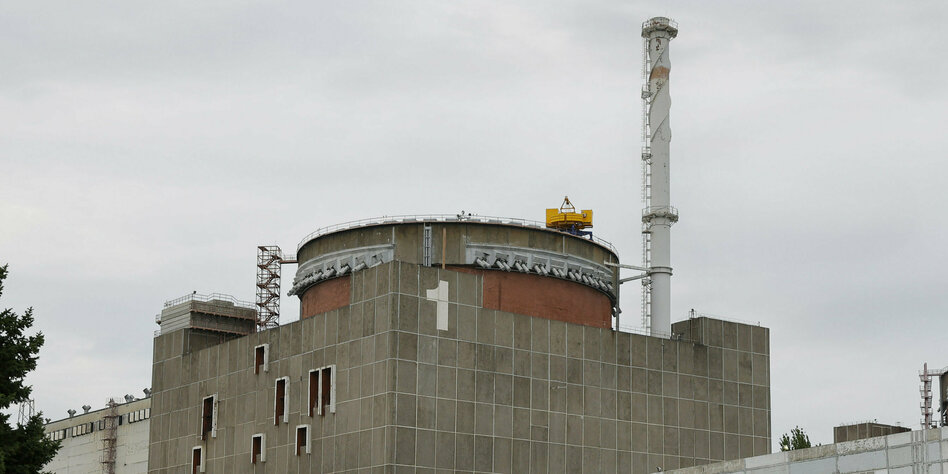Zaporizhzhia Nuclear Plant Faces Dire Consequences
Critical updates have emerged from the conflict-ridden Zaporizhzhia Nuclear Power Plant, highlighting grave dangers and the potential dismantling of key infrastructure.
Published September 07, 2024 - 00:09am

Image recovered from taz.de
The Zaporizhzhia Nuclear Power Plant, Europe's largest nuclear facility, finds itself at the epicenter of escalating tensions amid the ongoing Russia-Ukraine conflict. Recent reports underscore the severe damage inflicted on a cooling tower, igniting fears of a nuclear catastrophe.
Rafael Grossi, the head of the International Atomic Energy Agency (IAEA), visited the plant and confirmed the severe damage to the cooling tower. In a video shared on social media, Grossi, while inspecting the tower, remarked, The large structure is unusable for the future and will likely need to be demolished. This assessment followed a fire in August that damaged the tower, an incident for which both Russia and Ukraine blame each other.
Grossi's visit has brought renewed attention to the precarious situation at the plant, which requires external power for cooling its nuclear materials despite being shut down. The plant, under Russian control since February 2022, has been the focus of multiple inspections by the IAEA, whose inspectors have been stationed there since mid-2022.
Adding to the tension, the Ukrainian President, Volodymyr Zelensky, is expected to visit Germany to attend a meeting with the Ramstein Contact Group. At this meeting, he is anticipated to urge for more weapon supplies, particularly long-range missiles and advanced air defense systems, to strengthen Ukraine's military capability against Russian advances.
Meanwhile, in the east of Ukraine, the conflict continues unabated. Russian forces have recently launched an attack on a residential area in Kostjantyniwka, resulting in deaths and injuries. The city, located in the troublesome Donetsk region, has suffered repeated shelling as Russian troops gradually move westward through the area.
The intercontinental reverberations of these developments are profound. Germany has announced the purchase of additional IRIS-T air defense systems for Ukraine, a move underscoring the growing international dimension of the conflict. The involvement of global powers emphasizes the far-reaching implications of the conflict, reminding the world of the potential for wider escalation.
Amid these developments, Grossi met Zelensky in Kyiv, where the President expressed a dire need for political efforts to regain control of the Zaporizhzhia plant. It is safer for Ukraine to control Zaporizhzhia. Unfortunately, there are only political steps today, and they are insufficient, otherwise, the plant would already be under our control, Zelensky stated. He emphasized that returning the plant to Ukrainian control remains a foremost goal, albeit a challenging one due to the combat situations.
In another assertion of territorial defense, the Ukrainian General Staff reported heavy fighting along the Pokrovske and Kurakhove directions. This declaration aligns with reports from Russian sources claiming that their forces have successfully targeted Ukrainian troops near the Kursk border with airstrikes.
The geopolitical stakes continue to rise as the two nations' military engagements inch closer to potential disaster. The destruction of critical infrastructure like the cooling tower at Zaporizhzhia elevates fears of a nuclear mishap. After visiting the plant, Grossi provided reassurances that the cooling tower damage did not impact the safety of the six reactors currently offline. Nevertheless, the international community remains on high alert.
The situation in Ukraine is complex and multifaceted, involving military, political, and humanitarian elements. The Zaporizhzhia nuclear plant stands as a symbol of the broader conflict, representing both immediate and long-term challenges that resonate far beyond the regional landscape.
As the conflict endures, the imperatives for diplomatic resolution become increasingly urgent. The unfolding events at Zaporizhzhia highlight the critical intersection of military conflict and nuclear safety, demanding concerted international effort to avert potentially catastrophic consequences.






